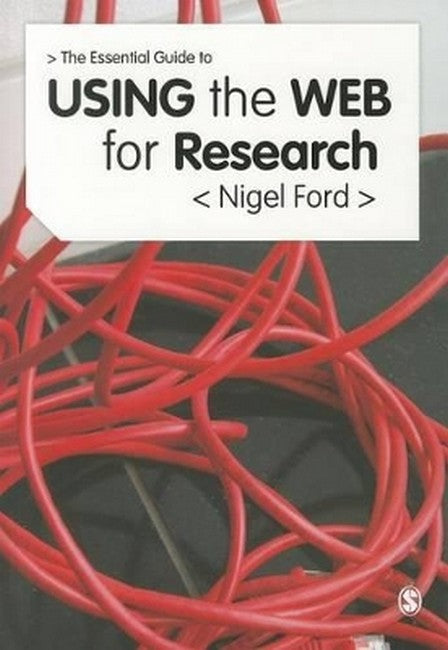Nigel Ford is Professor in the University of Sheffield's Information School.
Request Academic Copy
Please copy the ISBN for submitting review copy form
Description
Introduction Why Read This Book? The Book's Underlying Rationale Search Tools Covered in this Book Learning and Critical Thinking: The Essentials Learning and Assessment Basics Essential Learning Components Summary Clarifying What Is Required of You Clarifying the Nature of your Assignment Planning your Assignment Summary Finding High-Quality Information Defining 'Authoritative' Information Information Seeking Summary How to Do a Literature Review Initial Explorations Strategies for Finding High-Quality Academic Sources Summary Information Sources and Search Tools Types of information source Types of search tool Summary Mapping Search Approaches and Techniques to Information Needs Directory-Based Browsing and Searching Topic Similarity Searching Document Similarity Searching Filtering Citation Searching Boolean and Other Advanced Search Engine Operators Summary Scholarly Search Tools in Detail When to Use Which Search Tools Google Scholar SciVerse Scopus Web of Knowledge Incorporating Web of Science Summary Transforming Information into Evidence-Based Arguments Making Information 'Your Own' Critically Evaluating Information Validity, Reliability, Objectivity and Generalisability as Critical Tools Developing Your Own Evidence-Based Arguments Summary Presenting Your Evidence Effectively Plagiarism Citing Your Sources Summary Keeping up to Date A New Document is Published on your Topic Documents in Which You Are Interested Are Cited in a Newly Published Document An Author is Cited by a New Document or Publishes a New Document A New Issue of a Journal in which you are Interested is Published A website in Which You Are Interested is Updated Summary Organizing and Sharing Your Information Mendeley Basics Importing Data from Google Scholar and Other Search Tools Adding PDF Files to Your Library Inserting References into Your Work Summary
Well structured, thorough, accessibly written and presented, Nigel Ford uses lots of charts, diagrams and step-by-step guides to steer the reader... It is primarily targeted at undergraduate and postgraduate students who will definitely find it invaluable when setting out on their dissertations and theses...That said, this guide will prove equally useful for professional researchers in any field...Overall I consider this a very useful and timely book. Indeed I wish I'd seen it many years ago. Its key strengths are its pertinence to researchers' current needs, thoroughness, detailed discussions, accessibility, step by step approach and supply of handy techniques and tips. Berni Graham SRA News Ford offers the answers to the question of how to find interesting web material for your research and it is clear that here is where Ford's expertise comes through. Personally, I use mainly Google, Picarta and some catalogues of universities and research institutions. Ford offers a number of additions to my repertoire. In addition to Google, he includes SciVerse Scopus and Web of Knowledge and advises that a systematic search strategy should constantly be evaluated and, if necessary, adjusted. -- Raynald Bosch

